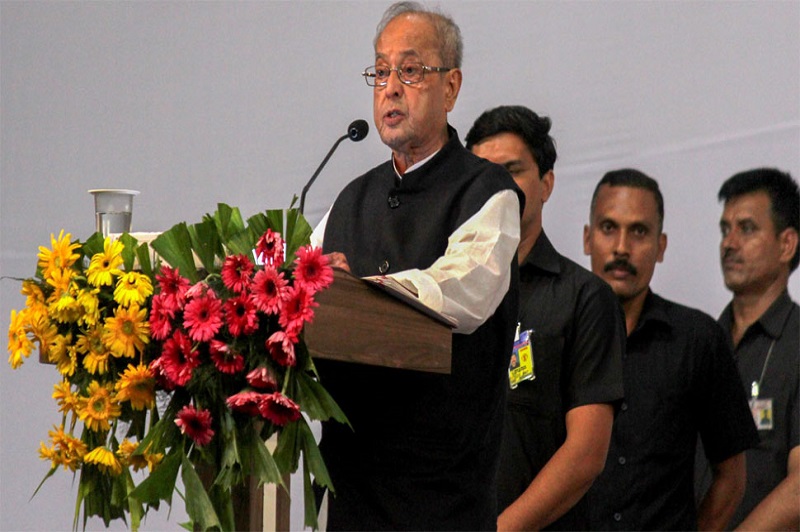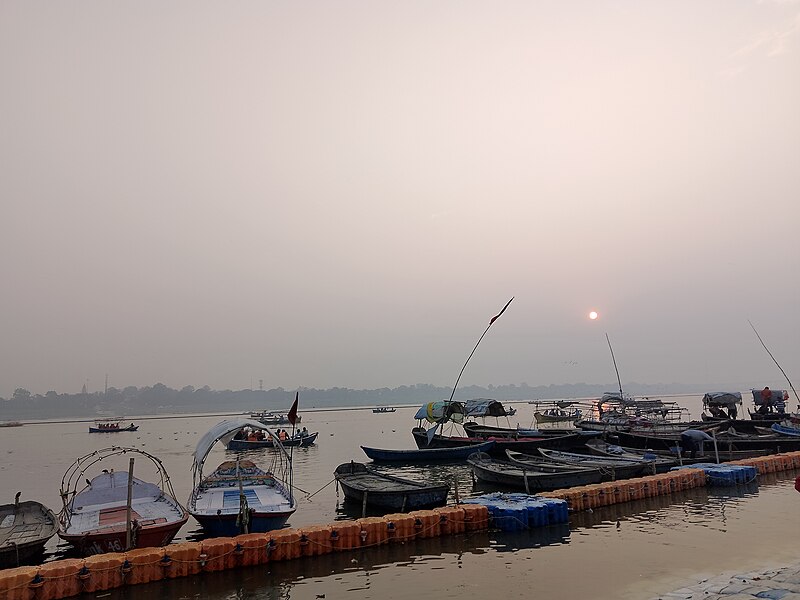Ex-Prez holds a mirror to Congress
Ravi Shanker Kapoor | June 26, 2018 8:46 pm

The political controversy created by former president Pranab Mukherjee’s speech at the RSS headquarters in Nagpur has actually underlined much that is problematic and unhealthy in Indian politics. In particular, it has exposed those who claim to be the champions of liberty, pluralism, and democracy.
Congress leaders, and a large number of intellectuals, were against his visit for reasons that are essentially intolerant. They can’t tolerate one of their tallest leaders going to the headquarters of an organization, RSS, that is the biggest exponent of Hindutva. But would they have made similar remarks had Mukherjee accepted an invitation by a communist party? Highly unlikely; there might have been some murmurs of unease, but no extreme reactions.
One wonders why. Over one hundred million people died in the countries—Russia, China, Cambodia—under communism. How come that an ideology that spawned brutal regimes is okay with Congress leaders and intellectuals but a conservative ideology, Hindutva, is contagiously diabolical, any interaction with which may have deleterious moral effects?
Hindutva is not be a great political philosophy but it surely hasn’t created monsters like Stalin, Mao, and Pol Pot; its votaries haven’t caused the death of millions in purges, collectivization drives, and concentration camps. The ideology has its hotheads and cowboys who have terrorized Muslims and even killed a few suspected of involvement in cattle trade, but there has been nothing to suggest that Hindutva engenders violence of the scale that communism or even the Rightwing movements like Nazism and fascism did.
But anguish and disquiet riled the Congress and the self-appointed guardians of freedom and democracy. Political secretary to former Congress president Sonia Gandhi and party veteran Ahmed Patel summed up the party attitude: “I did not expect this from Pranab da.”
Then there was Ripun Bora, Rajya Sabha MP and Assam Congress chief, who offered unsolicited counsel to the former president who has spent about half a century in the grand old party: “I urge Pranab Mukherjee to reconsider his decision of attending the RSS conference as it will have far reaching repercussions and negative impact in the socio-political scenario of India. Senior Congress leader and former home minister Sushil Kumar Shinde was modest in his reaction: “Pranab Mukherjee dedicated his life to secularism. Even if goes to RSS, he isn’t going to change his ideology. I just hope that he delivers a message of secularism to them.”
This brings us back to the question: why is Hindutva regarded contagiously diabolical? Congress and thought leaders can talk to and interact with communists, socialists, separatists, and even Muslim fundamentalists but not a Hindutva body. The basic idea is to ostracize the Bharatiya Janata Party, the engine of Hindutva in the political arena, to malign them to the extent that any interaction with them by any political force itself becomes target of ridicule and opprobrium.
The Congress, with ample assistance from Left-liberals, did that for over five decades after Independence. Anybody having any truck with the BJP was castigated as ‘communal’, ‘opportunist’, etc., be it George Fernandes or even such a towering personality as Jayaprakash Narain. The Congress strategy paid rich dividends: in the first 51 years after Independence, the party ruled for 45 years and had government supported by it for over two years. The bugbear of ‘communalism’ has served the party very well.
After Mukherjee’s speech, however, the Congress lauded him. Congress communications in-charge Randeep Surjewala said, “Pranab Mukherjee has shown mirror of truth to RSS, to follow India’s civilizational values. Will RSS and the prime minister change path and accept his sagacious advice?”
What Surjewala misses is the fact that the former president has also held a mirror to the GOP. In his speech, Mukherjee said, “In a democracy, informed and reasoned public engagement on all issues of national importance is essential. A dialogue is necessary not only to balance the competing interests but also to reconcile them. Divergent strands in public discourse have to be recognized. We may argue, we may agree, or we may not agree. But we cannot deny the essential prevalence of multiplicity of opinion. Only through a dialogue can we develop the understanding to solve complex problems without an unhealthy strife within our polity.”
The RSS and the BJP should heed to the advice rendered by the senior Congress leader, but his own party should also do the same.






























